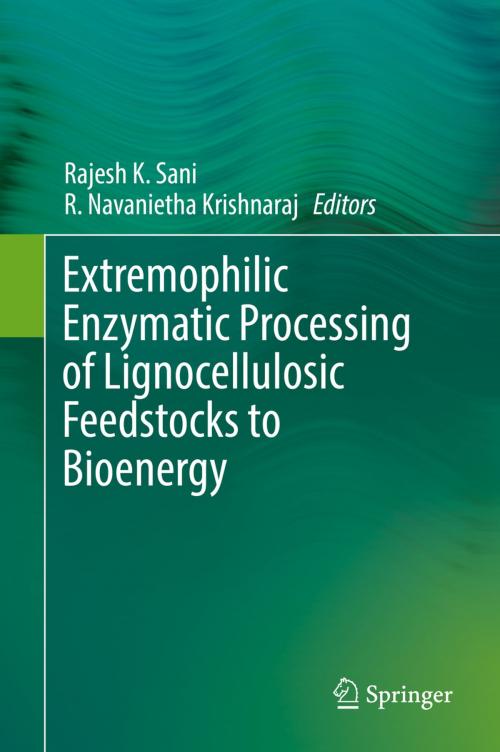Extremophilic Enzymatic Processing of Lignocellulosic Feedstocks to Bioenergy
Nonfiction, Science & Nature, Science, Biological Sciences, Microbiology, Biotechnology| Author: | ISBN: | 9783319546841 | |
| Publisher: | Springer International Publishing | Publication: | June 23, 2017 |
| Imprint: | Springer | Language: | English |
| Author: | |
| ISBN: | 9783319546841 |
| Publisher: | Springer International Publishing |
| Publication: | June 23, 2017 |
| Imprint: | Springer |
| Language: | English |
This book introduces fundamentals of enzymatic processes, various renewable energy resources and their pretreatment processes. It presents in-depth review of extremophilic enzymes (e.g., Cellulases, Xylanases, Lytic Polysaccharide Monooxygenases, Amylases, Ligninases, Pectinases, Esterases, and Chitinases) which can be used in several biotechnological processes. In addition, the authors present expert knowledge on how to engineer enzymes for enhanced conversion of lignocellulosic feedstocks to biofuels.
Extremozymes play important roles in many kinds of bioprocessing e.g., in conversion of non-food biomass into usable power. Existing enzymatic technologies, including hydrolysis of lignocellulose into sugars, have several limitations such as they have very slow enzymatic hydrolysis rates, yields low products, requires high dosages of enzymes, and are sensitive to microbial contamination problems. These limitations could be overcome using extremophilic enzymes.
This book introduces fundamentals of enzymatic processes, various renewable energy resources and their pretreatment processes. It presents in-depth review of extremophilic enzymes (e.g., Cellulases, Xylanases, Lytic Polysaccharide Monooxygenases, Amylases, Ligninases, Pectinases, Esterases, and Chitinases) which can be used in several biotechnological processes. In addition, the authors present expert knowledge on how to engineer enzymes for enhanced conversion of lignocellulosic feedstocks to biofuels.
Extremozymes play important roles in many kinds of bioprocessing e.g., in conversion of non-food biomass into usable power. Existing enzymatic technologies, including hydrolysis of lignocellulose into sugars, have several limitations such as they have very slow enzymatic hydrolysis rates, yields low products, requires high dosages of enzymes, and are sensitive to microbial contamination problems. These limitations could be overcome using extremophilic enzymes.















